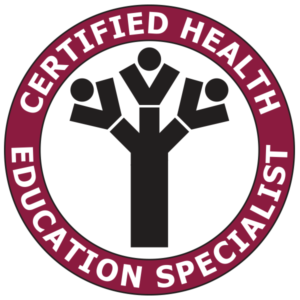Improving Energy Levels
People often tell me they want to be more active, get more done, and feel better on an average day. However, many say they do not have the energy that they wish they did. If you feel that way, what can you do to boost your energy levels and feel better than you do right now? Let’s break it down.
Hydration
Our bodies are mostly made of water, and many of the body’s functions require water. If you are not properly hydrated, then your body will not function properly and your energy levels will be low. Recommendations range from 64 ounces a day to half your body weight in ounces a day. Another important factor to consider is not just how much liquid you are drinking, but WHAT you are drinking. Certain liquids may not hydrate you as much as you may think. Caffeine is a diuretic, which means the body flushes out liquid by causing you to urinate more often. Coffee, soda, and tea can be poor choices for staying hydrated. When I was younger, I would drink three to four sodas a day. My energy levels were up and down throughout the day, and I often had trouble sleeping at night. Overall, my energy levels improved when I cut back on the soda (sugar and caffeine) and began to just drink water.
Eating Habits
What you eat can be just as important as the liquids you drink. Certain foods can lead to improved energy levels, while others decrease energy levels. Dark leafy greens offer many energy boosting vitamins and minerals, such as iron. Protein rich foods help keep muscles strong when combined with strength exercise. Certain foods like simple carbohydrates can leave you feeling bloated and tired throughout the day, especially when overeaten. Try focusing on fruits and vegetables early in your meals to fill up more on high-quality foods before your regular meal.
Exercise
To improve your energy levels, you also need to take into consideration your exercise habits. Being physically active leads to having strong bones and muscles as well as an improved cardiovascular system. Resistance exercise makes your body physically stronger, allowing you to support weaker areas of the body (lower back, knees, and hips.) Cardiovascular exercise helps improve the efficiency of blood flow throughout the body. This means that blood pressure, heart rate, and oxygen flow to muscles and organs will improve. The cardiovascular system can now function more efficiently and with less effort. Also, exercise early in the day has been shown for most people to improve energy levels throughout the day.
Sleep
All of the improvements I have listed above may not matter much without the proper sleeping habits. Most people need the recommended seven to eight hours per night. Everyone is different (I knew a man that only needed four hours a night!), so pay attention to what makes you feel the most rested. Make sure your sleep is as consistent as possible; not only does your body expect the same amount of hours per night but also the same timeframe (Example: 11 pm to 7 am). Lack of proper sleep can lead to general fatigue, lack of energy to perform exercise, mental fogginess, and even increased hunger.
As you can see, there are several areas you can work on to improve your energy levels. I would suggest working on one area at a time. Also, work on the easiest area first. If it might be hard to work on the exercise and eating habits, then focus on the sleep and hydration first. Once you feel it has become a consistent habit, move on to the next area you want to work on. With some dedication you can be more energetic, more productive, and happier.

CHES, ACE Health Coach, AFPA Nutrition & Wellness Consultant








Leave a Reply
Want to join the discussion?Feel free to contribute!